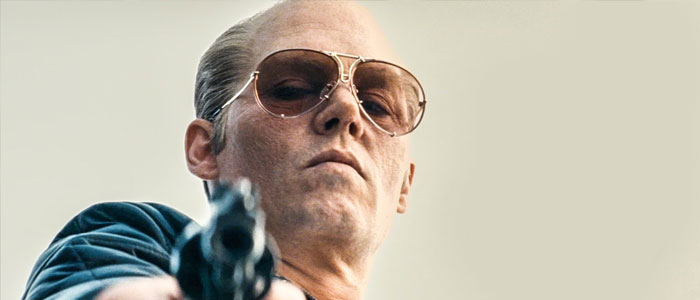
*½/****
starring Johnny Depp, Joel Edgerton, Benedict Cumberbatch, Rory Cochrane
screenplay by Mark Mallouk and Jez Butterworth
directed by Scott Cooper
by Walter Chaw I liked Scott Cooper's Out of the Furnace well enough. It's miserabilist poverty porn, but it features an impressive cast doing ugly work, and I was fine with its stock pleasures as a deep genre exercise in the Next of Kin/hillbillysploitation mold. I like Black Mass considerably less. It's a cartoon with a cartoon performance by Joel Edgerton, cartoon makeup for Johnny Depp, and cartoon accents from everyone else, including a miscast Benedict Cumberbatch, tasked with sounding South Boston rather than South London c. 1882. There's a scene early on when the respectable senator played by Cumberbatch, Billy, is at home for the holidays with older brother and star of this show, Jimmy "Whitey" Bulger (Depp), that plays exactly like an outtake from Johnny Dangerously–card-cheatin', tough-talkin' Irish ma and all. It's funny. Unintentionally so, I'd wager, but in any case funny in a cruel way. Edgerton's big, showy, Townie turn as former boy from the old neighbourhood (I should say "NAY -buh–hud") turned FBI agent Johnny is also funny–for the wig, yes, but for the outrageous overacting, too. It's the first time since maybe What's Eating Gilbert Grape? that Johnny Depp has been out-hammed by someone, so at least there's that.
